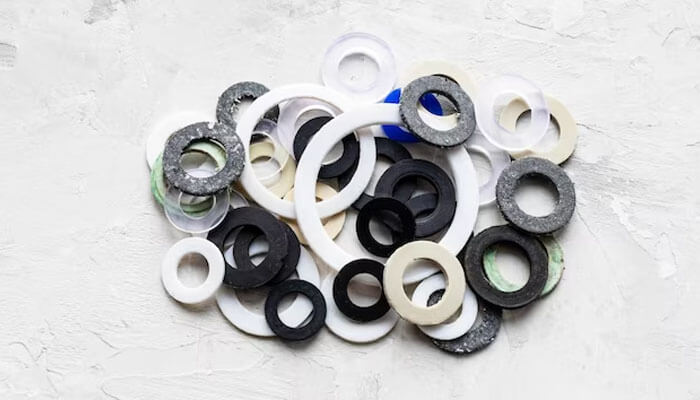Machined components play a crucial role in the functioning of various mechanical systems, including automobiles. These components are often exposed to harsh conditions, such as high temperatures and corrosion, which can affect their performance over time. One way to protect these components is by using PTFE or polytetrafluoroethylene coatings. PTFE is a polymer product that provides excellent lubrication and corrosion resistance for car components. In this article, we will delve into the chemistry behind PTFE and how it contributes to the protection of machined components.
What is PTFE?
PTFE is a synthetic polymer product that was discovered in the 1930s by a scientist at DuPont. The polymer is made up of fluorine atoms and carbon atoms arranged in a specific molecular structure. The high-density structure of polytetrafluoroethylene coatings provides excellent resistance to high temperatures, chemicals, and corrosion. It is also known for its low friction coefficient, making it a popular choice for lubrication. These properties make polytetrafluoroethylene coatings an ideal material for coating various machined components, including those in automobile engines.
The Chemistry behind PTFE
PTFE owes its impressive properties to a number of key chemical reactions. The strong bond between carbon and fluorine atoms in polytetrafluoroethylene coatings gives them exceptional heat and chemical resistance. This bond is one of the strongest known in chemistry, and it prevents other molecules from interacting with PTFE. Polytetrafluoroethylene coatings are highly corrosion resistant and can withstand temperatures up to 260°C.
The structure of PTFE also plays a key role in its lubricating properties. The molecular structure of PTFE is such that the fluorine atoms form a low-friction surface, which makes it an ideal material for lubrication. When applied to machined components such as engine parts, polytetrafluoroethylene coatings help to reduce friction and wear, ensuring optimal performance and longevity.
PTFE also has a unique ability to repel water and other fluids, which helps to prevent corrosion. When water or other corrosive substances come into contact with PTFE, they are unable to bond with the surface. As a result, polytetrafluoroethylene coatings protect machined components from corrosion and damage caused by exposure to moisture and other fluids.
Impact of PTFE on Machined Components
The use of polytetrafluoroethylene coatings on machined components has numerous benefits. These coatings provide excellent lubrication, reducing friction and wear in components such as engine parts, bearings, and gears. This results in improved fuel efficiency, reduced maintenance costs, and longer component life.
In addition to providing lubrication, polytetrafluoroethylene coatings also prevent corrosion and damage caused by exposure to harsh environments. This can improve the performance and lifespan of machined components, ultimately resulting in cost savings for car manufacturers and owners.
Using polytetrafluoroethylene coatings can enhance the durability and reliability of printing machines that depend on machined components to work well. By protecting these components from wear and tear, polytetrafluoroethylene coatings can ensure that printing machines operate smoothly and consistently, leading to greater productivity and profitability.
Conclusion
PTFE is a synthetic polymer product that offers excellent lubrication and corrosion resistance for machined components in automobiles and other mechanical systems. The unique chemistry of polytetrafluoroethylene coatings, including its strong carbon-fluorine bond and low-friction surface, make it an ideal material for coating various machined components, including those in printing machines for sale. By providing superior protection against wear and corrosion, polytetrafluoroethylene coatings improve the performance, longevity, and reliability of machined components, ultimately resulting in cost and time savings for car manufacturers and owners alike.



